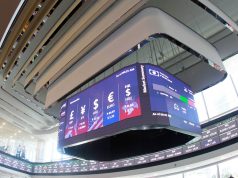Big oil firms back fuel marking, citing need to curb smuggling
THE Philippine Institute of Petroleum (PIP) said its members, which include the country’s biggest oil companies, support the government’s fuel marking program as a means of curbing smuggling.
“As early as last year, our members have been working closely with the Department of Finance (DoF) to ensure the program’s proper and effective implementation. We support the government’s efforts to curb smuggling which continues to undermine the industry and the government in general,” PIP said in a statement Monday.
Fuel marking involves the use of dyes blended into the fuel, to mark the stages undergone by a particular batch of product. The absence of the marker will be taken by the authorities as prima facie evidence that a shipment of fuel is not tax-compliant.
PIP’s members include Chevron Philippines, Inc., Isla LPG Corp., Petron Corp., Pilipinas Shell Petroleum Corp., PTT Philippines Corp., and Total Philippines Corp.
The group said the DoF consulted in June PIP member-companies on the draft implementing rules and regulations (IRR) of the program. It said initial visits to their facilities were conducted by the department, along with implementing bodies like the Bureau of Customs and Bureau of Internal Revenue, and the fuel marking provider.
“From the formulation of the IRR to the issuance of the implementing guidelines to conducting tests and visits to the facilities of PIP members, we have been generously lending our time and expertise as a unified body fighting the same fight,” the group said.
It said before the passage of Republic Act No. 10963 or Tax Reform for Acceleration and Inclusion (TRAIN), around P40 billion in government revenue was being lost as a result of petroleum smuggling. It said the findings were validated by various independent studies.
The group said it believes that fuel marking will address the shortfall in revenue collection “provided that it is done on a level playing field.” It added that the program has to be implemented across all industry players in order for it to be fully effective.
“The success of this program would mean a significant increase in tax collection and the opportunity to utilize these for much-needed social services and infrastructure. Consumers would also be assured of the quality of fuels in the market coming only from reputable sources,” PIP said. — Victor V. Saulon



